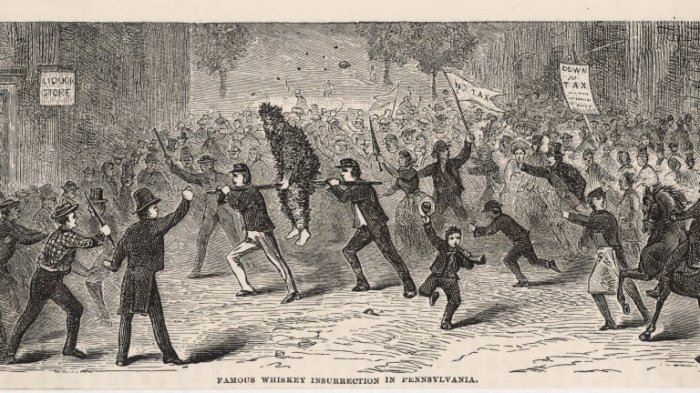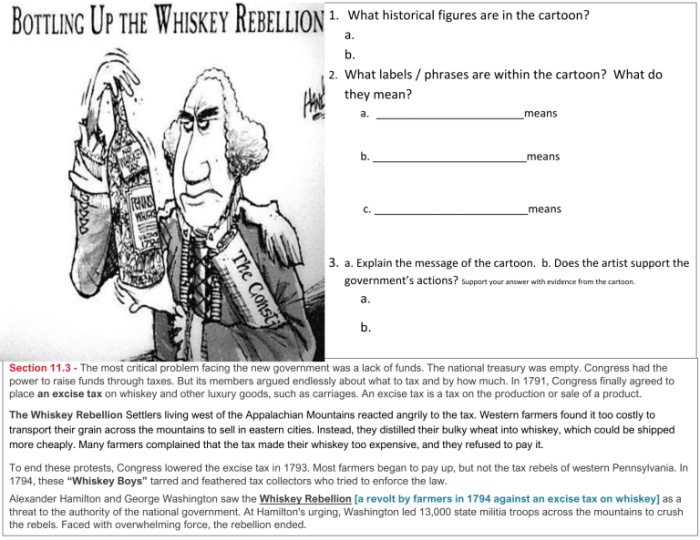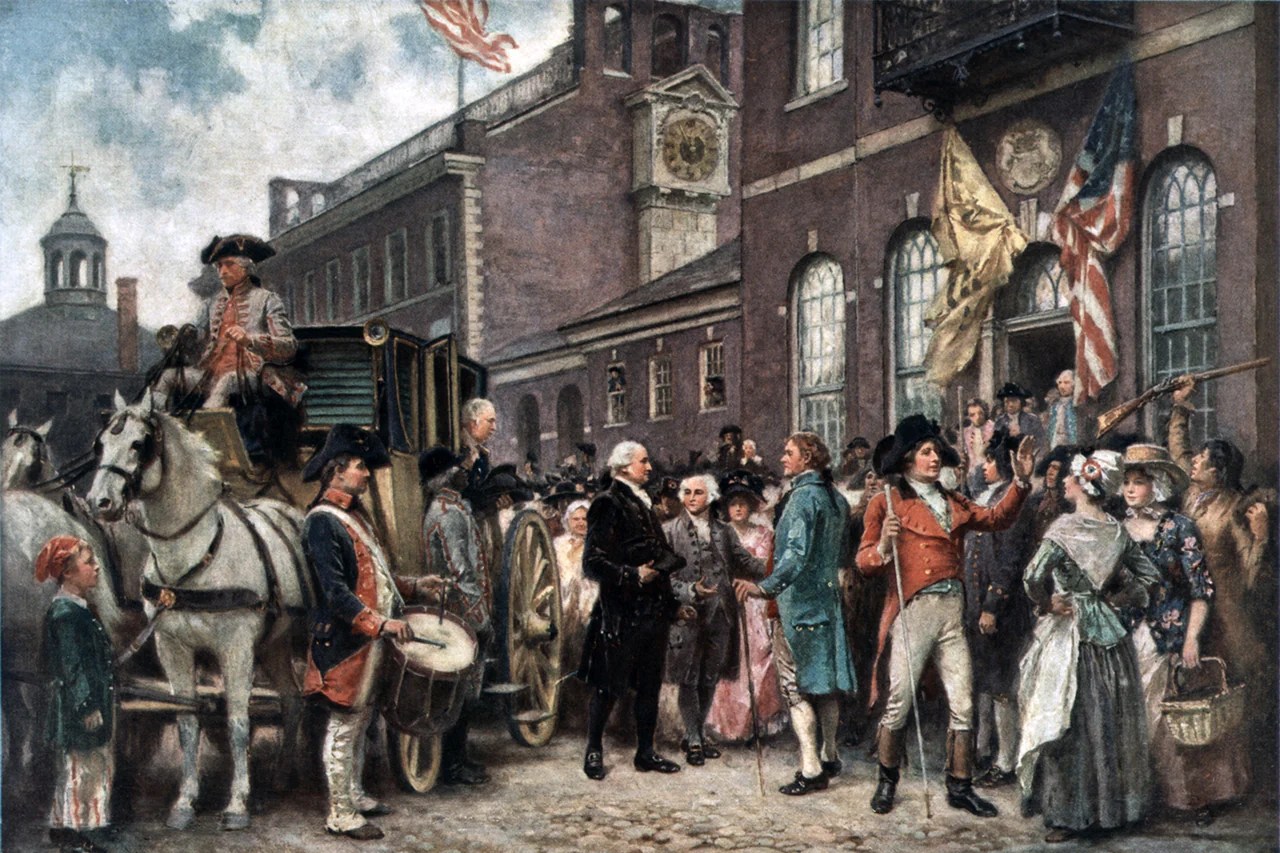Bottling Up the Whiskey Rebellion: A Pivotal Event in American History
The Whiskey Rebellion, a pivotal event in American history, provides a compelling narrative of government suppression, citizen unrest, and the enduring legacy of federal authority. This essay delves into the causes, strategies, and consequences of the rebellion, exploring its significance in shaping the relationship between the government and its citizens.
Background of the Whiskey Rebellion

The Whiskey Rebellion was a tax protest that occurred in western Pennsylvania in 1794. It was sparked by the passage of the Whiskey Tax, which was designed to raise revenue for the new federal government. The tax was unpopular among farmers who relied on whiskey as a source of income and as a medium of exchange.
The rebellion was led by a group of farmers known as the “Whiskey Boys.” They raided tax collectors’ homes, burned down tax collection centers, and threatened violence against anyone who tried to enforce the tax. The rebellion grew in strength and spread to other parts of western Pennsylvania.
The federal government responded to the rebellion by sending in troops under the command of General Henry Lee. The troops quickly put down the rebellion, and several of the leaders were arrested and charged with treason.
Bottling Up the Whiskey Rebellion
The government’s response to the Whiskey Rebellion was swift and decisive. President George Washington issued a proclamation calling for the rebels to disperse, and he ordered General Henry Lee to lead a force of troops to suppress the rebellion.
Lee’s troops quickly moved into western Pennsylvania and began rounding up the rebels. The troops were able to quickly put down the rebellion, and several of the leaders were arrested and charged with treason.
Consequences of the Rebellion: Bottling Up The Whiskey Rebellion

The Whiskey Rebellion had several immediate and long-term consequences. The rebellion led to the passage of the Sedition Act, which made it a crime to criticize the government. The act was widely seen as an attempt to suppress dissent and it was eventually repealed.
The rebellion also led to a decline in the popularity of the federal government. The government’s use of force to put down the rebellion alienated many farmers and other citizens who felt that the government was becoming too powerful.
Historical Significance

The Whiskey Rebellion was a significant event in American history. It was the first major test of the new federal government’s authority, and it helped to shape the relationship between the government and its citizens.
The rebellion also had a significant impact on the development of the federal government. The rebellion led to the passage of the Sedition Act, which made it a crime to criticize the government. The act was widely seen as an attempt to suppress dissent and it was eventually repealed.
The rebellion also led to a decline in the popularity of the federal government. The government’s use of force to put down the rebellion alienated many farmers and other citizens who felt that the government was becoming too powerful.
FAQ Compilation
What were the primary causes of the Whiskey Rebellion?
The Whiskey Rebellion was primarily driven by economic grievances, particularly the imposition of an excise tax on whiskey, a vital commodity in frontier communities.
How did President George Washington respond to the rebellion?
President Washington issued a proclamation condemning the rebellion and calling for its suppression. He also dispatched General Henry Lee to lead a force of over 13,000 troops to quell the uprising.
What were the long-term consequences of the Whiskey Rebellion?
The Whiskey Rebellion had several long-term consequences, including the establishment of the federal government’s authority over internal taxation, the strengthening of the federal judiciary, and the erosion of support for the Democratic-Republican Party.